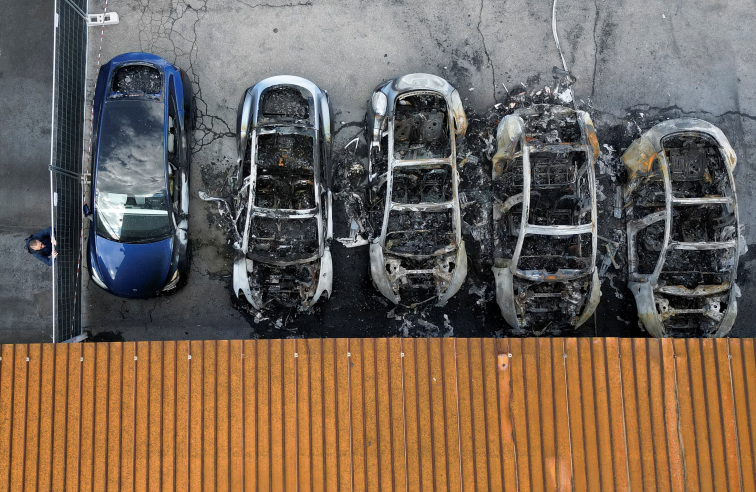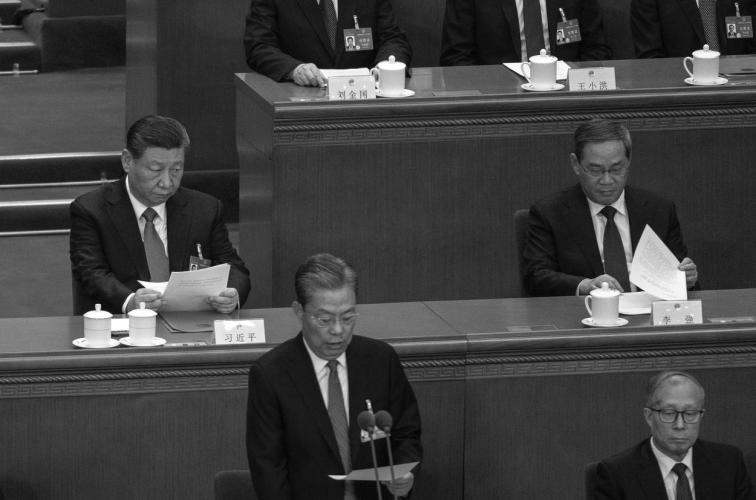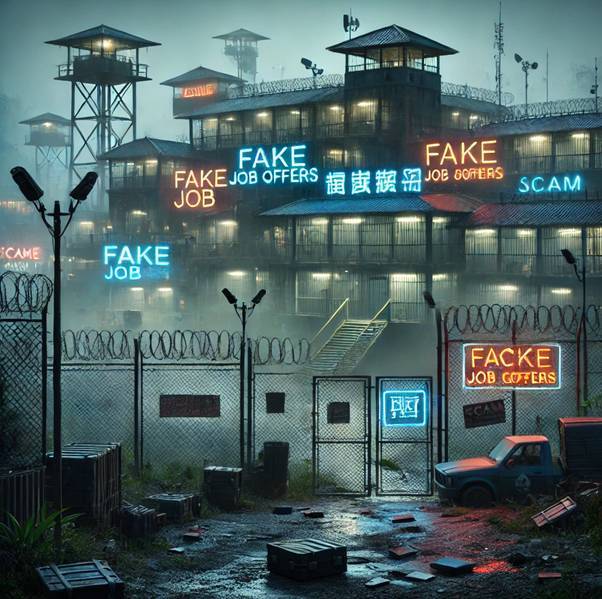(Video Screenshot)
[People News] On the first day of Chinese Communist Party leader Xi Jinping's visit to Russia, he experienced a shocking 'decapitation' incident. As Xi Jinping had just stepped off the plane and the motorcade had not yet entered Red Square, a rumbling sound filled the sky, followed by a series of massive explosions from the ground...
A Heart-Stopping 'Failed Decapitation' Incident
According to a report by Jiang Feng's Moments video, on May 7, Moscow was decorated with fluttering red flags and military music, creating a grand welcome for the distinguished guest. However, just as Xi Jinping's special aircraft entered Moscow's airspace, and before the welcoming fireworks could be launched, Ukraine had prepared a special welcoming gift for him.
Sources reveal that nearly 200 drones managed to breach Russia's esteemed air defence system, heading straight for the city centre. Some of these drones even targeted the base of the Russian aerobatic team, located less than five kilometres from Red Square.
Even more astonishingly, on-site witnesses reported that the explosions occurred at a perfectly timed moment, coinciding with Xi Jinping's arrival at the Kremlin after exiting his vehicle. With a loud bang, the ground shook, and the air was filled with the scent of gunpowder, plunging Moscow into a state of war.
According to on-site sources, the security team surrounding Xi Jinping reacted quickly during the incident, with over a dozen bodyguards forming a human wall in an instant, effectively becoming a human shield. They half-pushed and half-dragged Xi into the bulletproof vehicle, their movements so fluid it seemed as if they had rehearsed it countless times. The scene was chaotic, with Chinese Foreign Minister Wang Yi appearing pale and standing motionless like a puppet; meanwhile, Cai Qi, the director of the General Office of the Central Committee, quickly moved towards Xi Jinping, possibly hoping to benefit from the 'human wall shield' as well.
Once the situation returned to normal, Xi Jinping exited the vehicle and walked into the Kremlin. However, foreign media captured his gait as somewhat stiff, which appeared unusual and sparked renewed speculation about his health.
Security Challenges for Leaders in the Drone Era: Warnings from Red Square
Analysts have noted that this incident underscores significant changes in modern warfare. Small drones are no longer limited to reconnaissance and logistics; they now possess the ability to penetrate high-level security systems and accurately target key individuals. Traditional defence concepts for major targets, such as missile interception, electromagnetic suppression, and multi-layered radar, seem inadequate against drones.
The drone attack that occurred during Xi Jinping's visit to Russia, while not resulting in direct major conflict or diplomatic crisis, carries substantial symbolic weight. It serves as a reminder to global leaders that in modern warfare, even those in powerful positions cannot guarantee absolute safety.
This close-range attack in the heart of the Russian capital highlights the clear vulnerabilities of traditional air defence systems when confronted with small drones.
During the Cold War, the security measures for leaders' visits typically involved airspace lockdowns, strict manpower deployment, and radar network control. However, today, inexpensive, flexible, and hard-to-detect small drones are emerging as catalysts that blur the lines between battlefield and non-battlefield. This development not only exposes high-profile targets to greater risks but also fundamentally challenges the traditional model of 'secure and controllable' visits.
The potential threats faced by leaders of the Chinese Communist Party (CCP) in Russia underscore the real challenges confronting the current 'comprehensive strategic cooperative partnership' between Beijing and Moscow. While both nations have strengthened their cooperation politically and economically, the Russian side's inability to effectively prevent drones from approaching critical areas during this visit inevitably raises concerns in Beijing.
Conversely, Ukraine's choice to conduct precision strikes during Xi Jinping's visit has been interpreted by observers as a form of 'psychological warfare.' This act not only serves as a provocation against Russia but also signals to the international community that drone technology can influence high-level diplomatic activities, thereby altering the geopolitical landscape.
International military analysts indicate that such 'diplomatic conflicts on the brink of war' are likely to become more frequent in the future. The widespread availability of drone technology means that any nation, as well as non-state actors, can generate significant political impacts through low-cost means, thereby undermining the 'inviolable' myth surrounding traditional great powers.
The unexpected incidents during Xi Jinping's visit to Russia, although swiftly managed, undoubtedly cast a long shadow on the international stage. For leaders of nations still holding onto the illusion that 'high walls and deep courtyards can guarantee safety,' this day in Moscow may serve as a harsh reflection of reality.











News magazine bootstrap themes!
I like this themes, fast loading and look profesional
Thank you Carlos!
You're welcome!
Please support me with give positive rating!
Yes Sure!